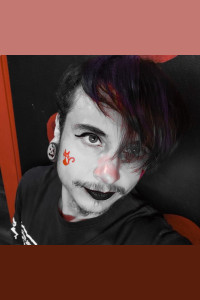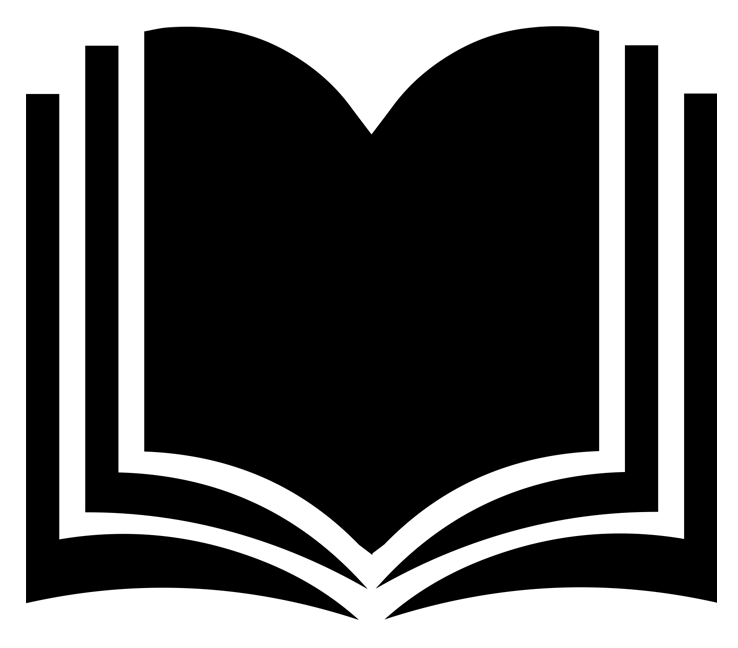PRINT
Love knows no gender.
Pate Boone, a twenty-six-year-old transgender man, embarks on a new adventure when his childhood best friend, and yes, ex-lover, Oakley Ogden, convinces him to escape their hometown in hopes for something new.
They land in Cloverleaf, a tiny rural town in Montana, so that Oakley can care for his granny who is battling breast cancer. She pressures the two young men to enroll in a nearby college. Pate immediately becomes enthralled with Maybelle, a young, vivacious freshman to whom he fears revealing his transgender identity. Still, he finds it impossible to resist Maybelle, even after he meets her ex, Bullet, a large, violent man determined to keep Pate away from “his girl.”
But there are others who accept Pate immediately, like Stormy. An outdoorsy, rugged freshman, Stormy warns Pate away from Maybelle and Bullet, but Pate’s too infatuated to heed these warnings.
Oakley tries to support his friend’s new love but finds himself entangled in his own emotional calamity when he unintentionally falls for Jody, a gay and ostentatiously confident drag queen. This new relationship awakens deep internal conflicts in Oakley as he struggles to accept his bisexuality, lashing out at Pate and causing friction between him and Jody.
Oakley must decide if he can overcome his insecurities so he doesn’t lose the love of his life. And Pate must discover if the love between him and Maybelle is strong enough for her to accept him as a transgender man, or if she will break his heart.
Reader advisory: This book contains references to homophobia, transphobia, physical assault and a past suicide attempt. There is use of marijuana and smoking, as well as mentions of gender dysphoria and past sexual assault.
General Release Date: 12th July 2022
How did I get here?
The question engulfed me as my eyes cringed and my guts tensed up as Oakley and I flew down the highway going seventy-five miles per hour. All I saw were miles of flat earth, lazy summer cows and the occasional rolling hill extending off into some unknown horizon. It looked distant and hopeless.
I was twenty-six years old and going nowhere. The only thing that I’d ever known for certain was that I wanted to be a man. I spent most of my high school days and early twenties working endless shifts at whatever hourly wage job would have me. I also worked small tutoring jobs, helping high school drop-outs study for their GEDs, or helping kids in the neighborhood get through high school trigonometry. Luckily, I got a steady gig as a bartender in East Atlanta that offered full-time benefits and insurance, something I had thought was an elusive dream. It took years of sacrifice and slaving away to scrape together enough funds to pay for my hormones and, eventually, my top surgery. Of course, kids typically stay on their parents’ insurance until their mid-twenties (thanks Obama!), but I was not welcome at home anymore and didn’t want to bug my parents for their insurance card. So I had to do it on my own.
I performed well in high school and later in college, maintaining a four-point-oh average and getting enough scholarships to help me fund my bachelor’s degree in English education. However, when I realized that I was transgender, college just wasn’t a priority anymore. I dropped out after two years to work full-time and earn more money for treatment.
Now, my current transitioning journey had been halted. I’d been taking hormones for more than two years and had top surgery ten months ago. I had no more funds to pursue the full transition, the coveted bottom surgery. I was now more visibly a man, but I was a man with no job, no more money and no support, except for Oakley.
Oakley and I met in the first grade. He was the typical “rebel” southerner who wore death metal shirts and played lead guitar in a death metal band. Oakley was my first everything. First friend, first real boyfriend (good ol’ ninth grade) and first sexual experience.
Oakley had a slow start into adulthood. He came close to marrying a girl he met after high school. Her family owned a dry-cleaning business, and they let Oakley manage one of their stores. A few years later, the girl got pregnant, and it seemed that Oakley’s future was set. For someone so rebellious, here he was getting married, having babies, buying a home and working in the family business. What a sell-out, I thought. A few months before the wedding, the girl told him that she had been seeing the drummer in his metal band and that the baby was the spawn of their passionate, clandestine romance that occurred often in the backseat of his truck while Oakley was tuning his guitar. Oakley never fully recovered.
Here we are, years later, Oakley childless, and me breastless.
A few months ago, Oakley’s grandmother was diagnosed with breast cancer. She was having a double mastectomy done in Seattle and would be returning to her ranch in a small town in Eastern Montana. She needed someone to take care of her and provide transportation for medical appointments. She offered Oakley free room and board, homecooked Granny meals and a beautiful, skyscraper-free skyline. Her only caveat was that she wanted Oakley to enroll in the local university and hold a part-time job. Since he had spent his childhood and adolescent years taking many trips to Montana for snowboarding and skiing, Oakley claimed that he was ready for a change and that the South just wasn’t where his soul belonged. Too afraid to embark on this new Pacific Northwest adventure on his own, he talked his grandmother into letting me move with him.
Neither of us grew up in urban, crowded, skyscraper jungles, but we were products of endless major highways with exits every five to ten miles that glowed under golden arches and gas station beams. As Oakley’s 2004 Pontiac Sunfire flew up Highway 2, my eyes frantically searched for lights, gas stations, food and civilization, only to see nothing more than flat earth and cattle ranches every time our car passed over a hill. I think I will need to develop a strong bladder.
“Are you sure that there is a town on this road?” I asked, more to myself than Oakley. “And why the fuck is it so cold? It’s freakin’ July!” I shoved my hands into my armpits in futile hopes of warmth. All my clothes were packed tight into old suitcases and garbage bags in the trunk, and I was sporting a tight-fitting black tank to show off my petite but toned biceps. But when our little Sunfire pulled into the dark, shady gas station along the Montana and North Dakota border, my face was met with a slap of icy cold wind and droplets of rain, sending a piercing shiver up my spine. I checked the weather on my phone. It read forty-five degrees.
“I’ve never actually driven here. We’ve always flown in from Billings in the eight-seater plane. Trust me, it will look better when we reach Cloverleaf,” Oakley calmly assured me.
Rising up from the conservative Southern trenches that had filled my belly with a large, hardened rock, I had learned to keep my mouth shut and my head down. As my eyes scoured the landscape of dilapidated derelict buildings and closed businesses when our car arrived in town, my heart wasn’t optimistic that Cloverleaf was going to be the place for me to thrive. As I looked closely at a man climbing out of his gargantuan four-by-four truck, I could just make out the ruggedness of his dirty hands with bloody cracks, his stiff, muddy boots that were probably black underneath all the dirt, and his deep forehead wrinkles from the hours in the blazing sun and frigid wind. Even if men here accepted me as a man, I didn’t know how I would interact with this form of masculinity. Instead, I gently caressed my soft, delicate, feminine hands.
I wasn’t a man’s man, yet in some ways, I was. I’d always been athletic. I played sports in elementary and middle school before quitting to work during high school. I was never talented, always preferring to support the good players rather than put myself out there, especially with the form-fitting uniforms that showcased my bouncy breasts when I ran. However, sports offered me a good excuse to exercise and stay fit in an attempt to avoid developing female curves.
Even after I started working, I still jogged three miles daily and lifted weights to make everything as lean and tight as possible. It took about a year and a half for the testosterone to thin me out like a man. As I ran my hands along my thigh bones that were hugged by my runner’s muscles, then along my abdomen where I could now feel the subtle crevices that nearly formed a complete six-pack, I finally adored my body. Years of working out and restricting my diet still left a hovering, protruding belly of fat that stuck out, and round hips that insisted on telling the whole world that I was a woman and never allowed me to have the body that my exercise efforts and heart cried out for. I scratched between my legs, waking up from my physical admiration as my genitals reminded me that I was still only half a man.
“You’ll be fine. There’s still a lot of pretty girls around here. And we’ll be hot stuff because we’re new and exotic,” Oakley sang as he rubbed his septum bullring piercing, causing his shirt sleeve to rise, revealing his array of skull tattoos.
Oakley and I were similar guys. We both had small, skinny physiques that prevented us from appearing like tough, dominant masculines, so we chose to paint our bodies with as many skulls, horror tattoos and gag-inducing piercings as possible to prove our masculinity in another kind of “tough” way. After all, I didn’t think that truck-driving ranching man who I saw at the last town was “man enough” to stick a needle in his septum or through his penis, as Oakley bravely did a few weeks ago. Yet, I felt that our masculinity was always dismissed because it didn’t follow stereotypical displays that involved driving trucks, getting dirty or flexing muscles. On the other hand, maybe it was all in my head.
“How do you suggest that I date around here?” I asked, throwing my hand up at the ocean of perpetual brown fields. “It would only take two seconds before everyone here knows I’m a freak.”
“You’re not a freak.”
“Yeah, well, say that to all the other men without vaginas.” I crossed my arms.
“I think there are a lot of women who wouldn’t care. Women are more open with their sexuality,” he argued.
“But then you add the no job, no money, no car—”
“We’ll get jobs,” he interrupted me. “There’s always hourly work around here. That’s easy. You can save up for a car. And we’re going to college, so our financial situation is acceptable.”
“Are you really into the college thing?” I challenged.
“Are you?” Oakley turned his eyes sideways to search for any dishonesty.
I heaved in a gulp of air as I looked away from him and focused my gaze on a worn-down Misfits sticker on his dashboard.
“What?” he urged.
“It’s just a waste of time,” I grumbled.
“You’re a good teacher. You’re going to be a good teacher—”
“No one is going to hire or accept a trans teacher in schools. Even if I get certified and hired, if I am ‘discovered’”—I made quotation marks with my fingers—“it’s over. And even if it’s not, I don’t want to put up the fight, you know?”
“Why not?”
“Because I’m not trying to be some transgender freedom fighter.” I sighed. “I just don’t want anyone around here to know about it, okay? Like don’t tell anybody.”
“Granny knows,” he reminded me.
“Besides Granny.”
“Okay.”

Writing has always been my passion, as well as the way that I process my own life experiences. I am an openly transgender (AFAB), panromantic asexual living in rural Montana. There are few LGBTQIA+ resources here, and I always feel there is more room needed for LGBTQIA+ literary works. I have always written fiction as a hobby and earned a B.A. in English Literature and a M.Ed. in English Education from the University of Georgia; however, I ended up earning a Ph.D. in 2013, which moved most of my writing to the academic genre in which I have published several co-authored articles in peer-reviewed academic journals.
After coming out as transgender in 2018 and as asexual in 2020, I decided to refocus my writing on LGBTQIA+ themes in which I write about my own experiences through fictional characters and stories. Writing about my experiences has been extremely therapeutic for me. I am particularly enthralled with the complexities behind LGBTQIA+ identities and highly advocate that sexuality and gender identity exists on a spectrum. This topic is highly personal because my husband married me when I presented as a woman and was adamant that he could not be with a man. He underwent his own process of reevaluating his sexuality and now identifies as bisexual with a preference for women and feminine men. I think he is a wonderful example of the true fluidity behind sexuality.
Likewise, I choose to write about what it means to be LGBTQIA+ in a rural community like my current residence in Montana. Rural communities offer their own unique challenges due to little to no existing resources in some areas and a true feeling of isolation and invisibility. I want to share my experience coming out in a rural community and choosing to live openly as a transgender person and openly in a same-sex marriage.
Additionally, I work full-time as a human services instructor and a mental health counselor at a community college. Through this work, I also educate and advocate for the LGBTQIA+ community. My work as an educator and a counselor fuels my desire to use my fiction to increase awareness and acceptance for LGBTQIA+ people. Lastly, I would characterize my writing as person-centered, a term created by Carl Rogers as a counseling therapy and later as a life philosophy. My works center around the beauty and extraordinary complexity in being vulnerably authentic.
Check out Carey's website and Instagram.









 Facebook
Facebook Twitter
Twitter